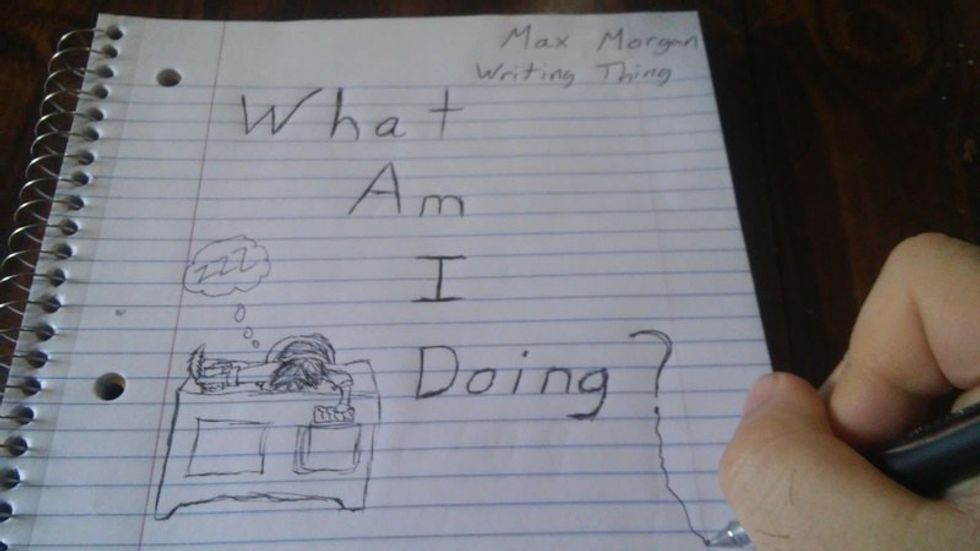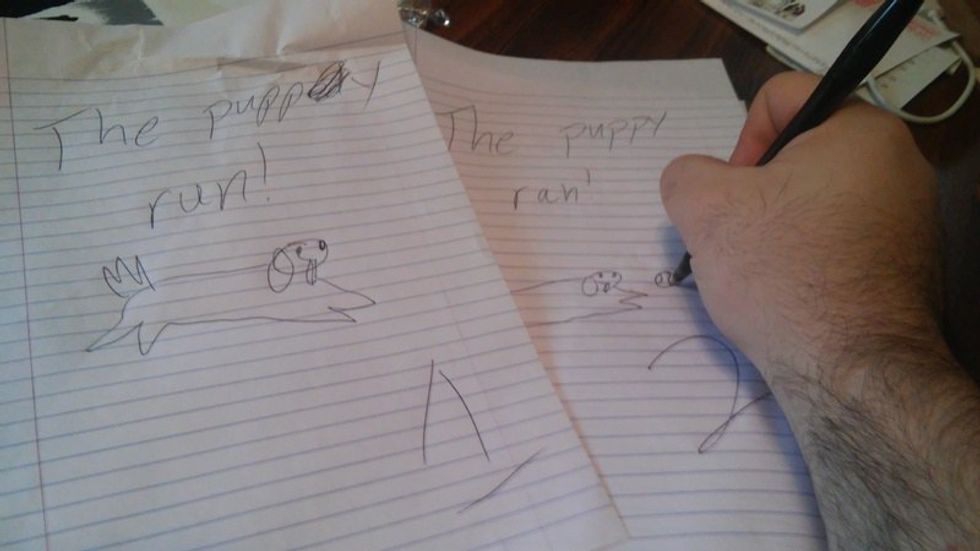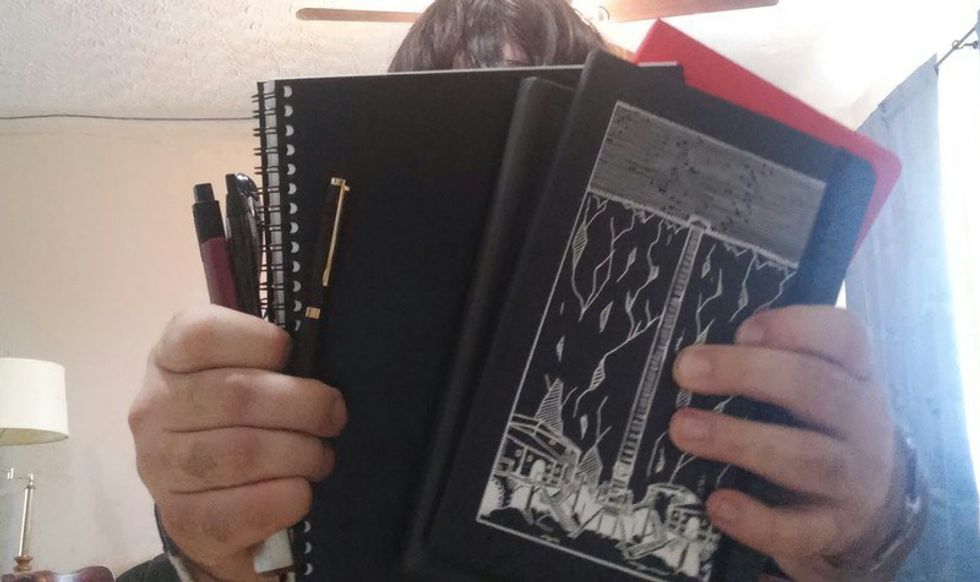Writing can be tough, and there are no ifs, ands or buts about it. Even for those of you who enjoy writing, it can be difficult to wrap your head around an essay or report for a class that just does not interest you. With the school year starting back up, here are some suggestions to help you get out and stay out of those writing funks.
1. Start Early and Don’t Procrastinate
Whoa, hold up there; don’t let me lose you already! I get it. I have been known to be King Procrastinator on several occasions, which is why I think it should be highly stressed as the very first point to help you out. Procrastination can be the number one cause of a decline in the quality of your writing, as well as an increase in stress. I speak from personal experience as well as constantly hearing people moan and groan that they wish they just would have done that assignment earlier. “Sure, I can hang out tonight. I have a week until the paper is due!” And then before you know it you’re pulling an all-nighter the night before the deadline with no research done, and you’re just hoping and praying you get a passing grade.
Despite how hard it can be not to put it off when you have time, it’s a habit you should really do your best break. There are a couple of options you could go with here. If you have a free night earlier in the week, you can try to get as much of it done then as you can so you don’t have to worry as much about it later. You could also try to plan it out throughout your week, research one night, draft a bit the next, and take it in chunks so that you aren’t doing it all at once.
2. Take a Break
“Did you just open with ‘Don’t Procrastinate,’ and now you’re telling me to take a break?” Yes, I am! It sounds crazy, I know. But taking a break and procrastinating are two different ball games. Whereas procrastinating is simply putting it off because you don’t want to do it, we’ll look at taking breaks like you’re actually working on it but you don’t want to fry your brain. For real, sitting at a desk or a table and typing for hours on end is never comfortable. For some, it can strain the eyes, for others you might start to feel it in your back or neck. There is also the inevitable writer’s block where no matter how hard we try we just don’t know what to write next! Just take a break. Give yourself 20 minutes or come back the next day once your body and mind are both refreshed. This will give you some time to relax and come back to your writing with a fresh mindset.
3. Ask for Help or Advice
With most professors, so long as you don’t wait until the last minute they will be more than willing to answer any questions you may have regarding an assignment or even be willing to look over your draft for you. No one will be able to tell you what they are looking for better than the person who assigned it to you, so it’s worthwhile to get their perspective on if you’re heading in the right direction. It’s also not a bad idea to hear what your peers have to say, or to ask a friend to read what you wrote over for you. Make sure you make it clear that you won’t be offended by what they say so that you can get an honest opinion from them on what you can improve on as well (and if you do this, then seriously don’t get offended, you’re asking for help and advice, right?). The more sets of eyes and opinions you can have, the better. You don’t necessarily need to take every bit of advice you’re given, this is still your piece of work after all. But sometimes other people can point things out and inspire ideas that you would never see on your own, and both parties can benefit from bouncing ideas back and forth.
4. Draft, Draft, Draft!
I hate rough drafts. I also have to admit that they are super helpful. When some people think of drafting, they think that they need to basically write the same thing two or three times. Once that rough draft is done, though, you’ve made it over the hump and past the hard part of the battle! With the draft you can experiment, you don’t have to worry so much about mistakes, and you literally get the chance to outline exactly what you want to do. Once you finish your first draft, that’s when it would be a good time to step away and think about one of the previous steps. Ask someone to read your draft and give you feedback, take a break before looking at it again, and when you’re ready it’s time for the finishing touches. If you type your rough drafts, then it’s as easy as opening it back up and adding in those finer touch-ups and changes (if you handwrite your drafts, you will need to retype the whole thing, but if you don’t mind that then no biggie).
5. Keep a Writing Journal
This is a suggestion that you probably don’t hear as much as the last few. I actually keep four different writing journals, and each one is for something different (one for fiction, one for interesting conversational topics, etc.). It doesn’t hurt to keep a writing journal laying around with different thoughts and ideas you can use in your writings. I’ve had a million times I would think of something so great I just knew I wouldn’t forget it- and then I did. It never hurts to write things down for future reference. If I don’t have a journal on me, I just text the idea to myself and write it in a journal later. You never know when one of these past thoughts or ideas will help you out in a writing jam.
Writing can be a very useful way of expressing oneself, and it certainly isn’t going away in schools anytime soon. While it can get tough sometimes, if you approach it the right way then you can definitely get through it as painlessly as possible and write to your full potential.

























